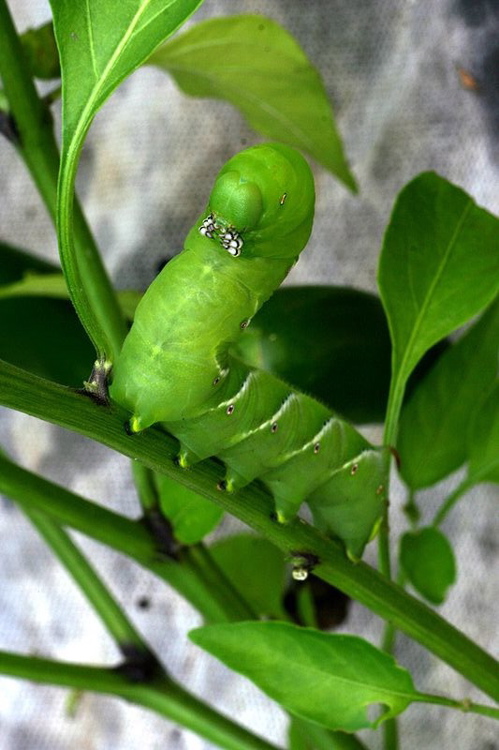Tobacco is bad for you
 Sunday, August 29, 2010 at 02:16AM
Sunday, August 29, 2010 at 02:16AM  My university botany lecturers at uni would probably be surprised to hear that any of their teaching had stuck in my mind, but some did. One enduring impression is that plants are very complex organisms and that humans probably don’t recognise the diversity of and precision of their survival mechanisms. Here’s some more evidence.
My university botany lecturers at uni would probably be surprised to hear that any of their teaching had stuck in my mind, but some did. One enduring impression is that plants are very complex organisms and that humans probably don’t recognise the diversity of and precision of their survival mechanisms. Here’s some more evidence.
Smoking tobacco is not good for you. Chewing tobacco is also unwise, especially if you are a tobacco hornworm caterpillar. A quick nibble on a tasty tobacco leaf will trigger an emergency response from the tobacco plant that calls in some serious reinforcements.
When damaged, the tobacco plant releases green leaf volatiles (GLVs). These are the compounds that give freshly mowed grass its distinctive aroma. Up to now it was thought that the GLVs send out a signal chemical signal that attracts predators. The predators then eat the herbivores that are consuming the plant.
It turns out that when the tobacco species Nicotiana attenuata is attacked by tobacco hornsworms (the caterpillar of stage of Manduca sexta), the chemical signal produced is different to the signal released if the tobacco plant is damaged in some other way.
Ian Balwin of the Max Planck Institute for Chemical Ecology, Germany, and Silke Allman of the Department of Plant Physiology, Swammerdam Institute for Life Sciences, Netherlands, found that when the saliva of the hornworm caterpillar mixes with the GLVs released by the plant, they are changed maiking them even more effective at attracting predators. Frankly, don’t mess with tobacco plants – they have friends in low places.

Reader Comments